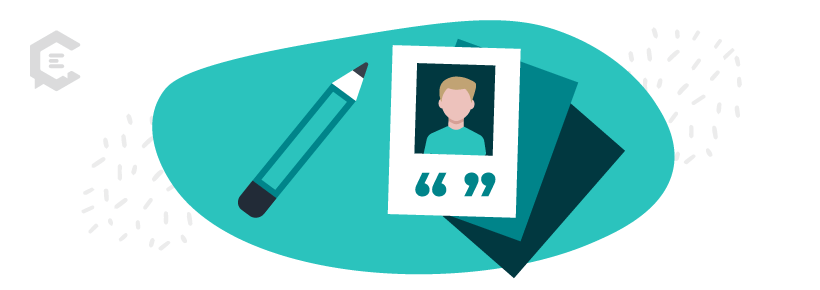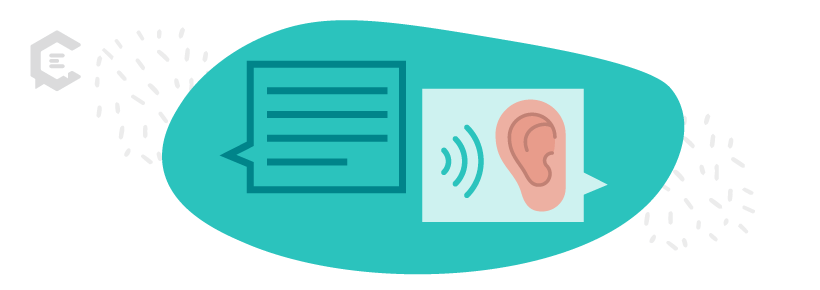The job of a journalist is to create fascinating stories for readers or listeners. Getting the meat for those stories relies on tapping into the know-how of expert sources through the interview process.
A successful discussion with your source gives you high-level information which, in turn, leads to outstanding stories. As such, any successful journalistic endeavor requires three must-have basics when it comes to planning and conducting a great interview.
1. Preparing
Between scheduling the interview and beginning the in-depth discussion with your expert, researching is a must. In addition to knowing the topic, you must do your homework on your source. Find out everything about him or her, their vocations, hobbies, and beyond. Why is this necessary? The best information comes from interviewees with whom you build a rapport.
2. Questioning
Questioning involves more than asking questions. When you sit down and have a conversation with someone you know, it feels natural and comfortable. You both feel as if you can express yourself, which is great for the interviewer because they can ask hard-hitting questions. Keep the following in mind before, and while, you start to tap into your expert’s expertise.
Begin conversationally
Again, think rapport. Also, think about putting the source at ease. Thanks to your in-depth research, you’ve learned a little about your source’s personal preferences. So, start your interview with that.
For instance, a journalist scheduled an interview with Texas billionaire and Dallas Cowboys’ football team founder Harvey “Bum” Bright about his real estate holdings. Upon entering his office, she observed a great deal of Texas memorabilia. The journalist began her interview with relaxed questions about the items, where they came from, and why they were important to Mr. Bright. The answers provided a great jumping-off point for the interview. In addition, Mr. Bright’s responses were so compelling, the journalist used them in her story, to outline the source’s personality.
Write down your questions
Having questions in front of you gives you an outline and focus you need for your story. But, ask conversationally; no one wants to be interrogated. Also, don’t be afraid to ask for clarification on answers. For example, the words “explain to me like I’m five,” encourages your source to speak in layman’s terms.
If you have nailed the colloquial setting, your source could become a wide-open conversational spigot. If you are listening, some of what’s being said will pertain to your story. At times, this might not be the case. You can bring your source back to the point with the following:
- “That’s interesting. Now let’s get back to something you mentioned earlier.”
- “Thanks for that information. It’s interesting. Changing the subject, let’s get back to . . .”
- “You were discussing a recent visit to California (or another activity). Let’s return to that.”
3. Listening
As a journalist, your main job is to listen to your source’s responses. Through strong listening, you obtain strong answers and can ask appropriate follow-up questions. Becoming a strong listener includes:
- Ask open-ended questions, and pay careful attention to the response.
- Not interrupting others; be silent until the source is finished talking.
- Paying attention to nonverbal cues.
- Being empathetic.
Your interview isn’t over until you walk out the door, or disconnect your call. Many times, the best quotes for a story come directly after the “formal” interview ends.
3a. Other Considerations
Additional issues to keep top-of-mind when it comes to interviewing are as follows.
Difficult sources
Difficult sources run the gambit from monosyllabic non-talkers to outright hostile individuals. The main point to remember is their response is nothing personal. Still, try the following when it comes to dealing with difficult sources.
- Ask, then ask again. Keep asking questions of your single-word source. One of two things will happen. You’ll get the information you need, one word at a time. Or, your source will finally open up under your careful queries.
- Keep your cool. You might already realize you might be dealing with a hostile source when you set up the interview. If this is the case, practice asking your questions, several times, before embarking on the interview. Also, don’t get rattled. Remain friendly and professional, even if your source is not.
Off-the-Record
There are few things worse than, upon conclusion of a really great interview, your source says, “this is off-the-record, right?”
Some journalists believe off-the-record doesn’t exist, and everything said during an interview is fair game. However, it’s also important to respect the source’s concerns. To avoid this, lay out the interview parameters at the start.
Be Curious, Charming, and Accessible
The main objective of an interview is to get enough information to ensure the story grabs your readers and listeners. Using the tips, above, can help you get into the right mindset of tapping into, and retrieving your source’s knowledge.





